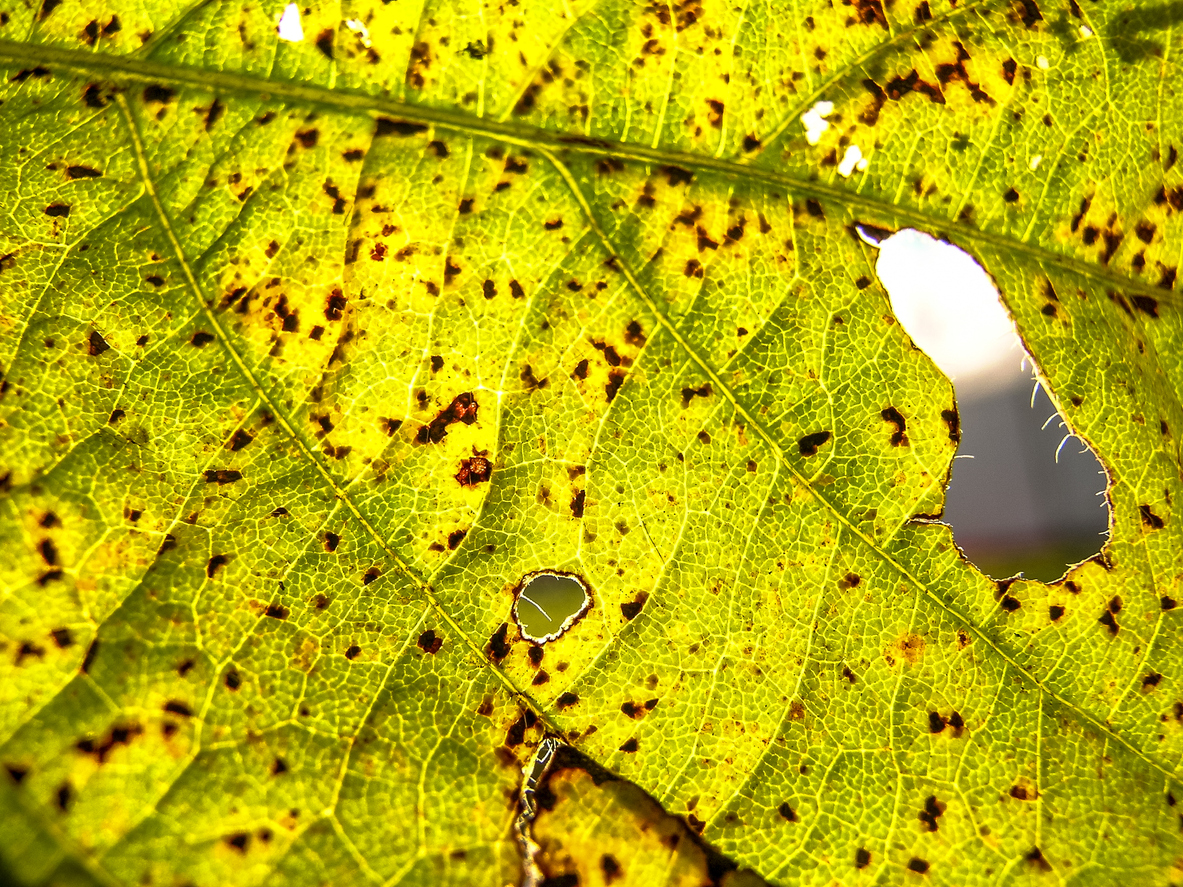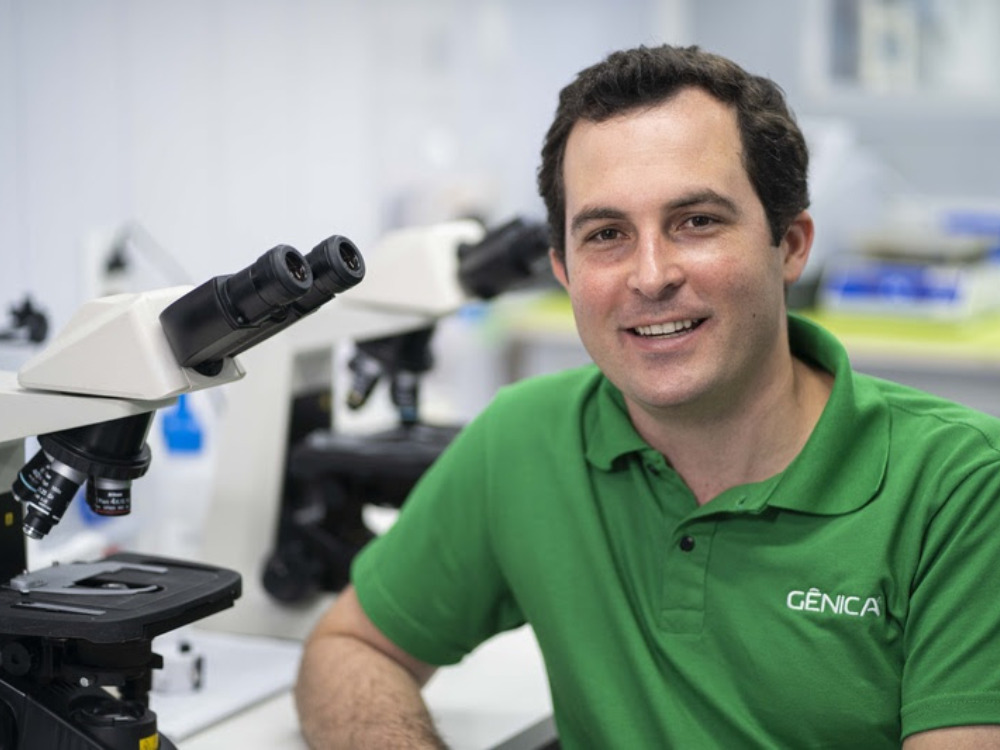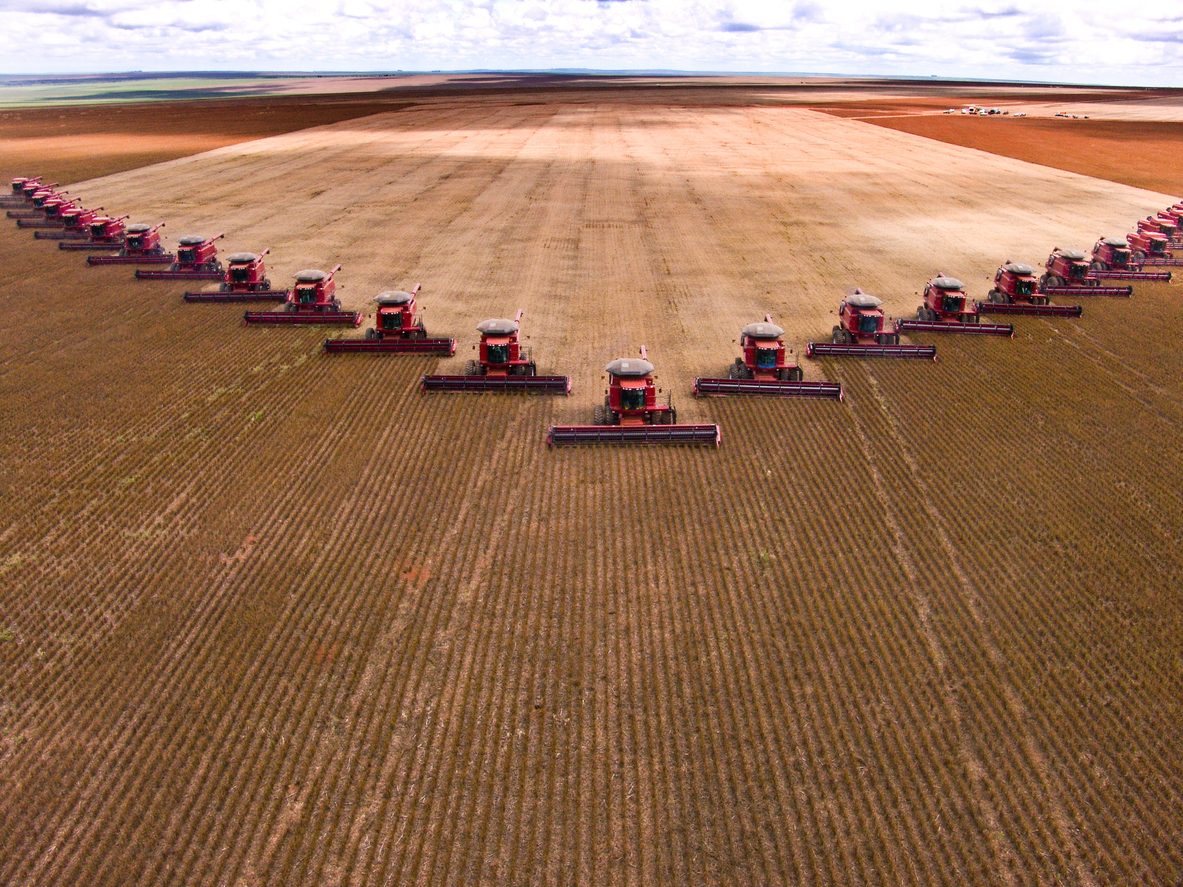In what it says is the largest transaction so far for ag biologicals in Brazil this year, Genica has raised R$68 million ($12 million), with Mitsubishi’s Agrex group leading the round.
Brazil’s state bank Banco do Brasil also invested through its corporate venture fund, which is co-managed by Vox Capital. Banco do Brasil is also an LP in SP Ventures, which was the first investor to back Genica and has participated in every one of the company’s financing rounds and invested across multiple vintage funds.
“We started investing in biologics back in 2009/2010, which was a little too early,” Francisco Jardim, managing partner at SP Ventures, tells AgFunderNews. “But we saw adoption, we saw regulatory [progress], we had a front row seat to see that Brazil was going to become not only the most dynamic but the largest adoption market for biologics in the world.”
Genica was founded in 2015 by entrepreneur and agronomic engineer Fernando Reis and Prof. Dr. Carlos Labate from University of São Paulo. The company has developed a number of different bio-based products for agriculture which fall into three categories: bio-inoculants, which increase nutrient-uptake efficiency in plants; bio-stimulants, geared towards plant physiology management; and bio-pesticides.
Currently, it makes products for soybean, corn and sugarcane, crops for which Brazil is the top exporter globally.
“We develop products based on microrganisms, metabolites, or natural organic compounds that act in one of the three areas [bio-inoculant, bio-pesticide, or biostimulant],” Genica head of research and regulatory Gerson Marquesi tells AgFunderNews.

A four-step evolution for bio-based
Since its founding, the company has been traveling through what Marquesi refers to as “four phases” of evolution for bio-based crop products.
“The first generation of our products was based on one microorganism with a specific function,” he explains. “The second generation moved to functional products with mixtures of different microorganisms with a broader spectrum of control and more adaptability to different environments.”
Generation three, where the company is currently at, involves “products developed for pests and disease control but based on the metabolites of microorganisms, not on the biomass.”
“We’re not applying the bacteria cells but the metabolites that the bacteria is capable of producing. So, we adjust the fermentation parameters to make more of the anti-fungal compounds for example.”
The result, he adds, is a faster, more powerful impact in the field compared to both conventional biologicals as well as previous generations of Genica products.
Genica will focus on this third generation for the next few years. The company currently has six fungicides for foliar diseases, leaf spots, soybean rust — things Marquesi says “are really hard to control and for which we still have a huge dependence on chemical compounds.”
Soybean rust, for example, can cause up to 80% crop loss and costs more than $2 billion per harvest in Brazil.
Marquesi adds that generations of Genica products are complementary: “We’re not stopping the first and second generation [products], because they are related to a specific function, but also improve biodiversity. But they’re not powerful enough to fully replace some fungicides, for example, so we use the third generation to fully replace important fungicides.”
Over the longer term, a fourth generation of products will address soil health and aim to provide bio-based products in a way that promotes an entire regenerative system for agriculture.
“We realized at some point that we needed to deliver [bio-based products] to the farmer in a more systematic way to change the way they do agriculture, providing more sustainability and profitability,” says Marquesi. “So we developed a system called REGENERA where we make a diagnosis of the field to understand the gaps in the system related to pests, nutrient-use efficiency. We create a management plan for two or three years using our whole portfolio of biologicals to increase biodiversity, reduce pest pressure, etc.”
“In the center of our innovation strategy are biopesticides and inoculants,” he continues. “But to help the farmer to implement a real regenerative ag system, we combine these solutions to complementary technologies, as adjuvants compatible to biologicals and cover crops treated with biologicals to speed up the recovery of the soils.”

‘A native biological company’
Francisco from SP Ventures says another major differentiator — particularly over major agro-chemical companies — is Genica being “a native biological company.”
“The sales team is extraordinarily qualified and technical, and they’re 100% specialized in selling biologics,” he says.
This means they can sell not just products but “the economics, the sustainability, how the biologics interact with chemicals,” he adds. “They understand the whole integrated concept from biological perspective. This is what has enabled these boys to elevate their game to selling a whole system.”
Marcos Petean, CEO of Genica, says the company makes about 50% of its revenue from ag retailers, and 50% from large agribusiness companies and farmers.
That last group is an important one in Brazil. “They are the early adopters [of biologicals] because they are more technical. “They understand not just biologicals but digital tools.”

‘Brazil is a juggernaut’
Brazil was a frequent topic of conversation last week at the Salinas Biological Summit — and an oft-cited example among event speakers as a country that has managed to crack the crop biologicals space in multiple areas.
“They have approved a new pesticide law and established better permissions for regulatory process, they have established new timelines for the registration for submissions [and] a new system of information,” noted Cristan La Paz, agricultural relations director for Latin America at Gowan. “They want to simplify and reduce the bureaucracy in the Brazilian agencies.”
“Brazil is a juggernaut,” declared Dr. Pam Marrone during her plenary. “There’s some very interesting lessons from Brazil. Which is how to educate growers to get adoption.”
The investment from Mitsubishi will give Genica access to be able to distribute to foreign markets, says Jardim. The relationship with input retail distributor Agrex, owned by Mistubishi, will provide additional reach. Genica is currently focused on Brazil and Paraguay, but says its products could theoretically work anywhere in the world.




